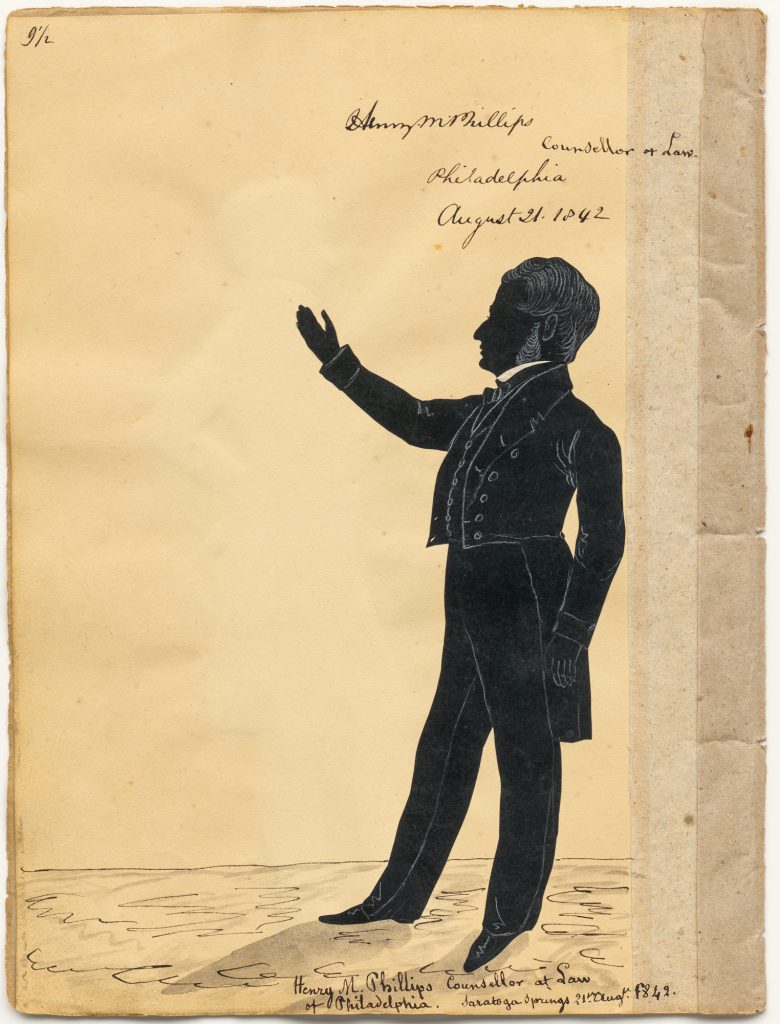Henry Myer Phillips, the son of Zalegman and Arabella Solomon Phillips, and grandson of Jonas Phillips, grew up in a family prominent both in Jewish and secular circles in Philadelphia. His father was one of the leading figures at congregation Mikveh Israel and a court clerk and well-known criminal lawyer. His older brother Jonas Altamont would join his father’s law firm, and Henry would follow father and brother into the legal profession, a launching pad to an extraordinary career that would take him from law to politics and public life.
After a successful start in the family firm, and, again following his brother and father’s lead, a long involvement with Democratic Party politics, Henry decided to run for office. In 1856 he was elected to the House of Representatives—the first Jewish Congressman from Pennsylvania—and served for a term, including an appointment to the Ways and Means Committee. Phillips situated himself on the conservative Buchanan wing of the party, taking a conciliatory attitude towards the South and the slavery question and making a speech in 1858 recommending the admission of Kansas as a state with its pro-slavery Lecompton constitution.
Though he only served that single term, Phillips remained politically engaged, corresponding extensively with President Buchanan and Vice President Dallas. Within this voluminous correspondence are numerous incidents of Phillips exercising his influence to secure posts and promotions for friends and relatives.
Phillips received, over the years, a number of civic appointments, including inspector of prisons, and was appointed to the Board of City Trusts, to the Commission for the Creation of Public Buildings, and to the board of the Fairmont Park Commissioners. He served on the boards of such corporations as the Pennsylvania Railroad, Western Union Telegraph Company and the Pennsylvania Company for Insurance of Lives and Granting Annuities. A public-minded philanthropist, Phillips served as director and president of the Philadelphia Academy of Music, was a trustee of Jefferson Medical College, and was elected a member of the American Philosophical Society, the most prestigious intellectual organization of the time. He was also very active in freemasonry, achieving the rank of grand master, and upon his death, the Pennsylvania Grand Lodge and the American Philosophical Society were among the largest recipients of his generosity.
Yet, Phillips seems a strange candidate for such distinctions—the extensive presidential correspondence, the numerous appointments. He was, in fact, very private, even shy. He never married and was not known for having many friends, close only to his sister Emily.
